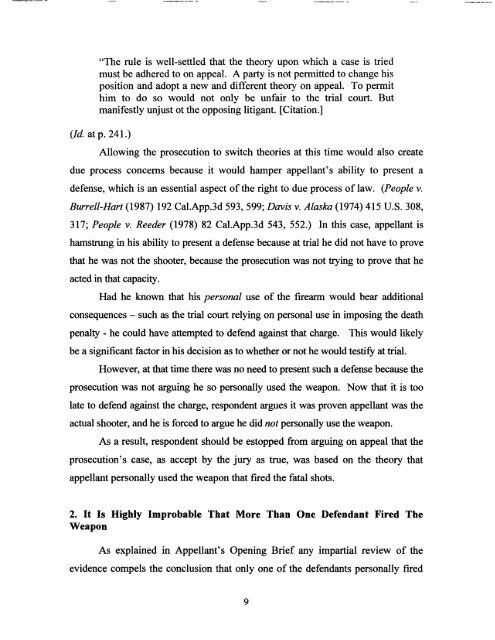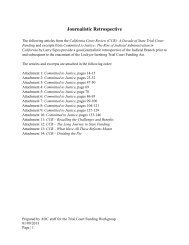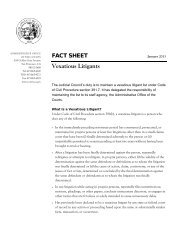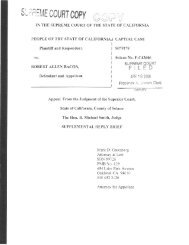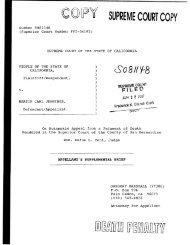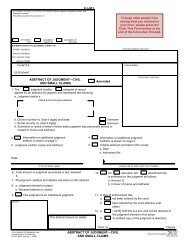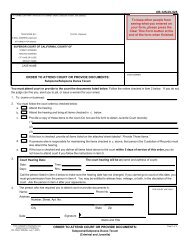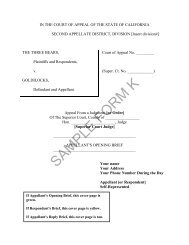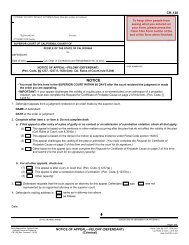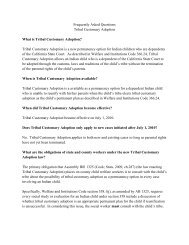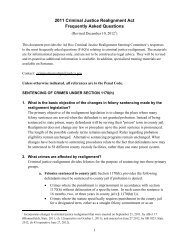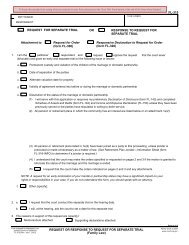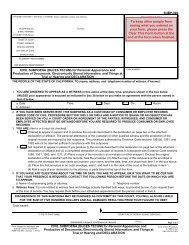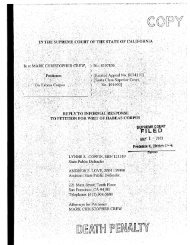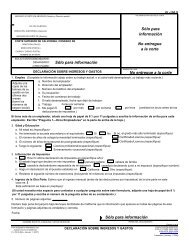Appellant, William Satele, Reply Brief - California Courts - State of ...
Appellant, William Satele, Reply Brief - California Courts - State of ...
Appellant, William Satele, Reply Brief - California Courts - State of ...
You also want an ePaper? Increase the reach of your titles
YUMPU automatically turns print PDFs into web optimized ePapers that Google loves.
"The rule is well-settled that the theory upon which a case is tried<br />
must be adhered to on appeal. A party is not permitted to change his<br />
position and adopt a new and different theory on appeal. To permit<br />
him to do so would not only be unfair to the trial court. But<br />
manifestly unjust ot the opposing litigant. [Citation.]<br />
(Id. at p. 241.)<br />
Allowing the prosecution to switch theories at this time would also create<br />
due process concerns because it would hamper appellant's ability to present a<br />
defense, which is an essential aspect <strong>of</strong>the right to due process <strong>of</strong> law. (People v.<br />
Burrell-Hart (1987) 192 Cal.App.3d 593,599; Davis v. Alaslw (1974) 415 U.S. 308,<br />
317; People v. Reeder (1978) 82 Cal.App.3d 543, 552.) In this case, appellant is<br />
hamstrung in his ability to present a defense because at trial he did not have to prove<br />
that he was not the shooter, because the prosecution was not trying to prove that he<br />
acted in that capacity.<br />
Had he known that his personal use <strong>of</strong> the fIrearm would bear additional<br />
consequences - such as the trial court relying on personal use in imposing the death<br />
penalty - he could have attempted to defend against that charge. This would likely<br />
be a signifIcant factor in his decision as to whether or not he would testify at trial.<br />
However, at that time there was no need to present such a defense because the<br />
prosecution was not arguing he so personally used the weapon. Now that it is too<br />
late to defend against the charge, respondent argues it was proven appellant was the<br />
actual shooter, and he is forced to argue he did not personally use the weapon.<br />
As a result, respondent should be estopped from arguing on appeal that the<br />
prosecution's case, as accept by the jury as true, was based on the theory that<br />
appellant personally used the weapon that fIred the fatal shots.<br />
2. It Is Highly Improbable That More Than One Defendant Fired The<br />
Weapon<br />
As explained in <strong>Appellant</strong>'s Opening <strong>Brief</strong> any impartial review <strong>of</strong> the<br />
evidence compels the conclusion that only one <strong>of</strong> the defendants personally fIred<br />
9


